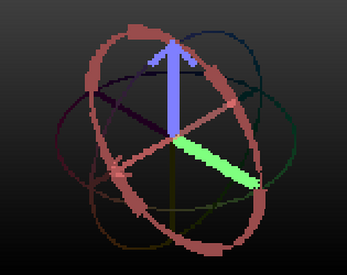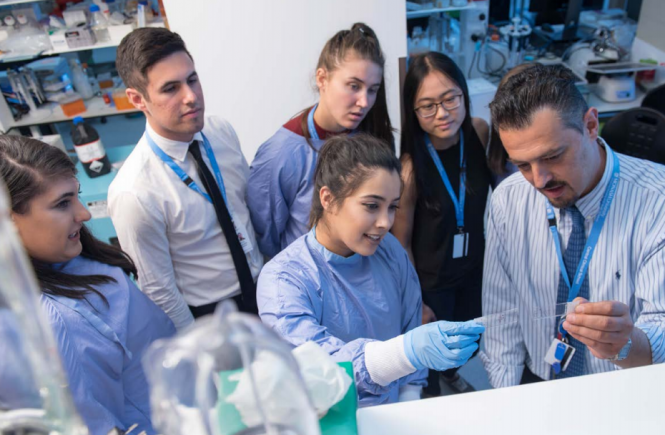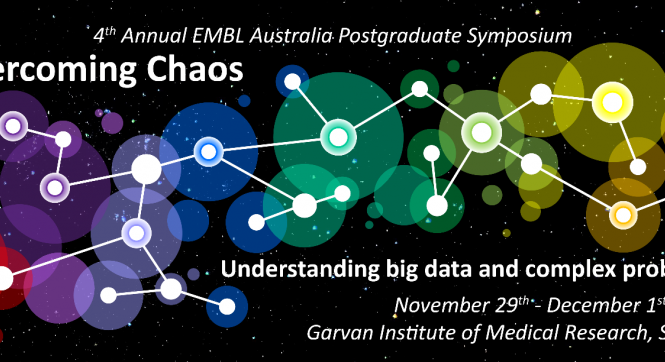This article is taken with permission from The Orbit.
Games are a great way to help the public understand abstract principles. Fourth year Bachelor of Science and Engineering student Alexander Tritt did just that and came in runner-up at the 2018 Quantum Games – a nationwide competition hosted by the ARC Centre for Excellence for Engineered Quantum Systems (EQUS) to explain the science behind quantum mechanics through computer games.

Alex tells The Orbit what inspired him to develop Measure Ball (download and play for free here) and the challenges he has to overcome during the game development process.
The Orbit: We hear that Measure Ball was inspired by your PHS3350 research – can you tell us more about that?
Alex: The research unit was about modelling the behaviour of ultra cold atoms that experimentslists Drs Lincoln Turner and Russell Anderson are trying to get to measure really small oscillating magnetic fields (i.e. ac magnetometry). These atoms are so cold that they don’t behave like regular particles and their quantum mechanical nature really shows. You can put extra magnetic fields around these atoms to make their behaviour more responsive to the small ac magnetic fields, so my job was really to simulate different configurations of these extra fields and also starting conditions for the atoms, to find out which setups produced the most useful (responsive) signals for detecting these small magnetic fields.
One of the simplest ways to set up magnetic fields around the atoms is by just having a field that doesn’t change over time and just points in a set direction. Since the atoms are little magnets themselves, they have have different energies depending on whether their magnetic moments (which in turn relate to the axis that they “spin” around) are aligned with or against the magnetic field. You can complicate things further by adding another magnetic field that oscillates over time that has a similar energy to it as the energy difference between the with and against the field states from before, and depending on weird factors like the phase of this magnetic field, this can (and sometimes can’t) make the atoms change (or really, cycle) between these two energy states. Of course, you can take things even further, and we did in my project, but the description above is already pretty confusing, and the mathematical description isn’t much easier to understand at first (in terms of how the atom moves, if it does at all, and why). The idea behind Measure Ball is to turn changing the state of one of these atoms (in the way that I described above) into a game so that students trying to learn about this stuff can discover what effect the factors that you’ll see in the mathematical description actually have on the system and get some intuition for it.
The Orbit: What challenges did you face when you were developing the game?
Alex: While I’ve been programming since high school, it’s hard to come up with a quantum-themed game design idea. In particular, I wanted to show off some rules of quantum mechanics realistically, and that’s hard to do given that the topic is pretty abstract. Other than that, I wrote the game in GameMaker, which is a 2D game engine that was originally designed for beginners to programming. This means that it’s easy to do basic things like move objects around, but it lacks tools to do anything complicated (including the ones you really want to solve quantum mechanics problems with). This can be fun in itself, since you need to come up with creative ways to get things working, but it did make things more complicated.
The Orbit: Tell us more about the comp and networking with other quantum physicists and games developers – what is your biggest takeaway at the event?
Alex: The award was held during the World Science Festival in Brisbane where the top five shortlisted games entries were showcased, with different scientific groups exhibiting at the event, and science communicators (eg Dr Karl) giving public talks. I had a great time networking with physics researchers, professional game developers, and student game developers, and we talked about the different things we were working on. I think the biggest takeaway from the event was how tricky it is to have quantum physics as a game mechanic, and it was cool to see all of the different ways people tried to make it work. It’s also nice to be told by professional game designers that even though I’m self/internet tutorial taught, I’m doing a good job in designing my game.
The Orbit: What do you hope to do next after graduation?
Alex: I’d like to thank the EQUS team for running the competition (it was a really fun opportunity), Drs Russell Anderson and Lincoln Turner for teaching me how the system in the game worked during my research project (and for the research project in general), and my family for helping me get to the event itself. I’m a sci/eng student (majoring in physics, pure maths, and electrical eng), so I still have some time before graduation, but right now I’m looking into continuing with physics research. Quantum computing looks interesting, though right now I don’t know too much about it so it’s hard to tell. But I’m definitely more interested in researching with actual physical objects (as in experimental physics) rather than just keeping theoretical.




